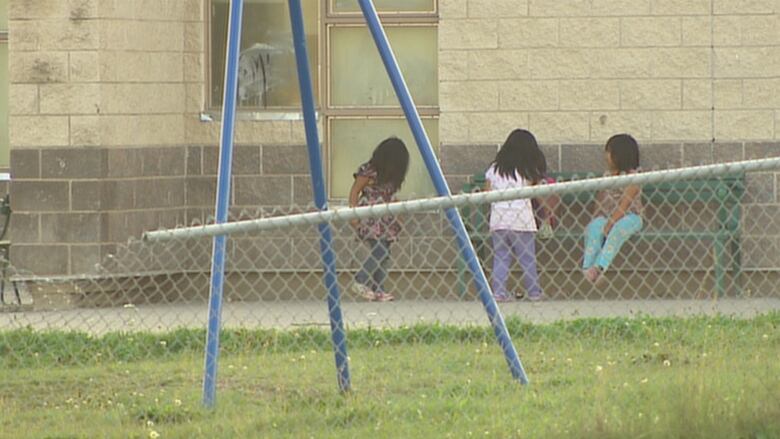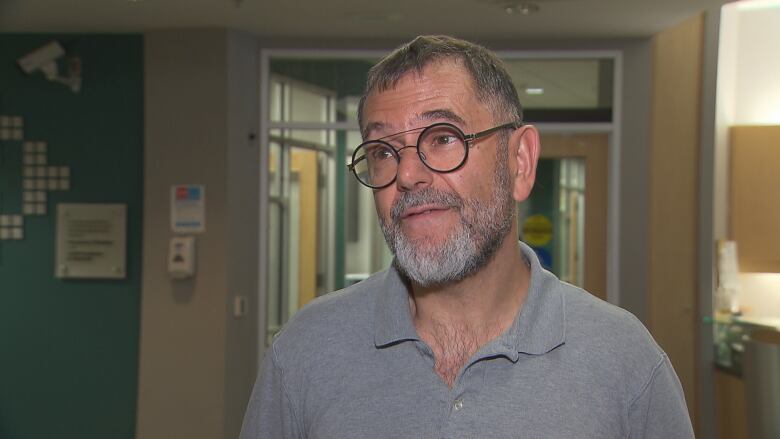Gap widens between First Nations and rest of Manitobans' health: report
First Nations Manitobans are 4 times more likely to attempt or die by suicide

The gap between the health of First Nations people and the rest of Manitobans is growing, highlighting a need for more cultural awareness in the health-care system, more training for First Nations health care workers, and better access to services, according to researchers.
The report, called the Health Status of and Access to Healthcare by Registered First Nation People in Manitoba, was released Tuesday by the Manitoba Centre for Health Policy, based on health data housed in the Manitoba Population Research Data Repository.
"This finding is not surprising to First Nations people, and it is not acceptable to allow this widening gap to continue," said Chief Sheldon Kent of Black River First Nation, Chair of the First Nations Health and Social Secretariat of Manitoba.
"The results of this worsening inequity ends up costing the provincial health system in the long run."
In the past 15 years, the gap inlife expectancy between First Nations and other Manitobans has widened to 11 years. First Nations women liveon average to age 72, compared to the rest of Manitoba women, wholive to age 83. First Nations men live on average to age 68, while the rest of Manitoba menlive to age 79, on average.
First Nations Manitobans are four times more likely to attempt or die by suicide.
The study also found the premature mortality rate or dying before the age of 75has gone from twice the rate for First Nations compared to the rest of Manitobans in 2002 to three times the rate today.
"This is not only worrisome, it is downright scary," said Chief Kent. "Why is this happening? We know exactly why this is so. Colonization is the root of the problem."
The study, jointly led by Manitoba First Nations, highlights the need for more collaboration between First Nations and all levels of government, according to researchers.
"Often times when we do work under the term 'Indigenous,' it's not necessarily based on our own indicators of wellness it's a measurement of illness," said Leona Star, with the First Nations Health and Social Secretariat of Manitoba, which co-led the report.
"We want to have a parallel system of primary health care that respects our needs and priorities of First Nation people living within our territories, and sometimes that means having two systems of health care that work side by side, and they come together as needed."
Researchers looked at data that showed non-identifying points of contact people had with all health-care services in the past 15 years.

"The health of all Manitobans is getting better so life expectancy's getting longer for all Manitobans. It's getting better for First Nations as well. But it's not getting better as quickly as it is for all Manitobans," said Alan Katz, director of the Manitoba Centre for Health Policy.
He said the social determinants of health, which include a person's environment, access to water, housing and services all affect health, but so do things that are harder to change.
"In the case of First Nations we really, really need to include the important things like racism and colonialism. Intergenerational effects of colonialism are really important to consider when we consider the health of First Nations."
"We need to develop programs to address those, not just provide more services. So it's a combination of the two and clearly we're not doing a good job of improving the health of First Nations."
In a statement, a spokesperson for Health Minister Cameron Friesen acknowledged the widening gap.
"We are committed to working with the federal government who is responsible for on-reserve services to address this inequity."












_(720p).jpg)


 OFFICIAL HD MUSIC VIDEO.jpg)
.jpg)



























































































